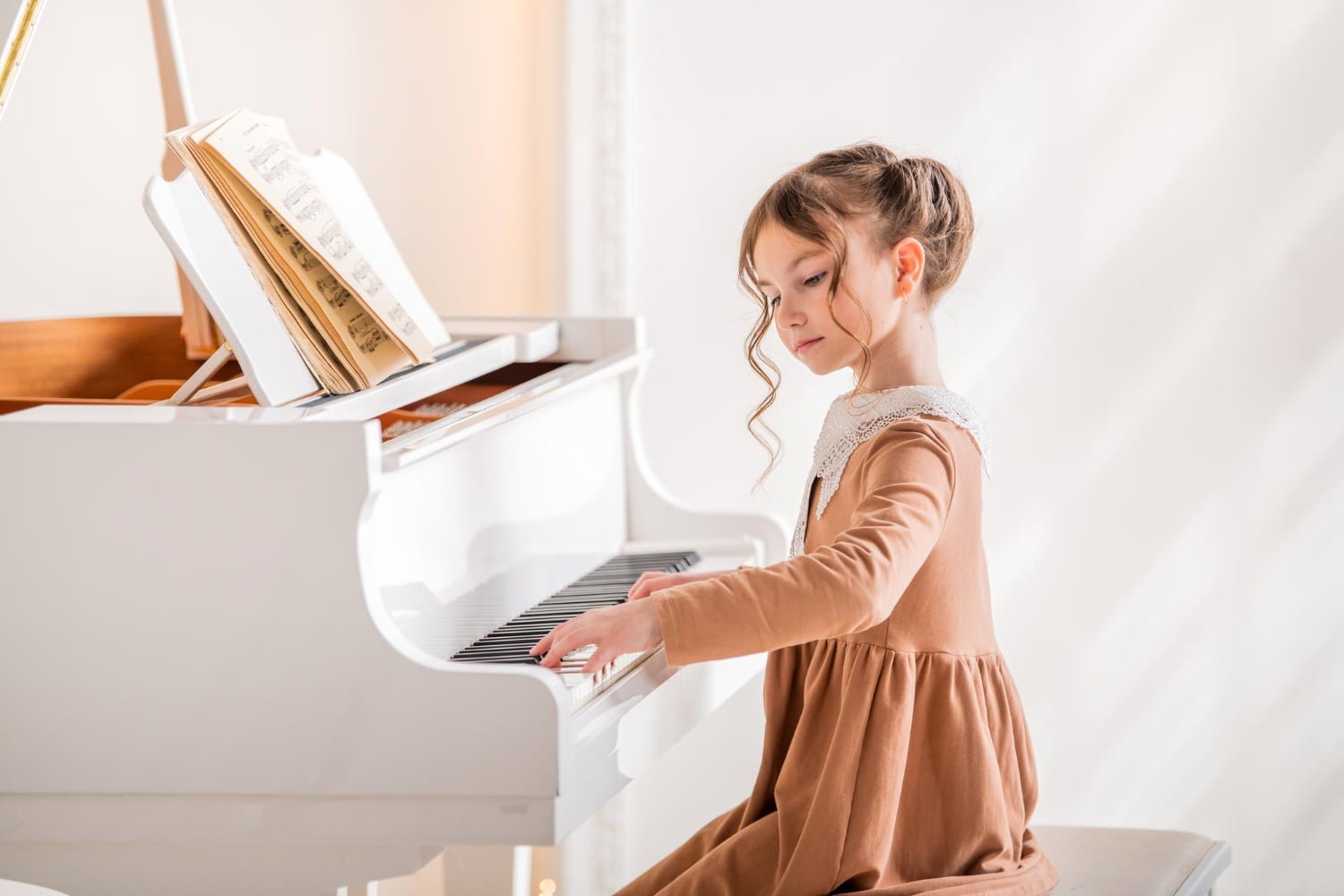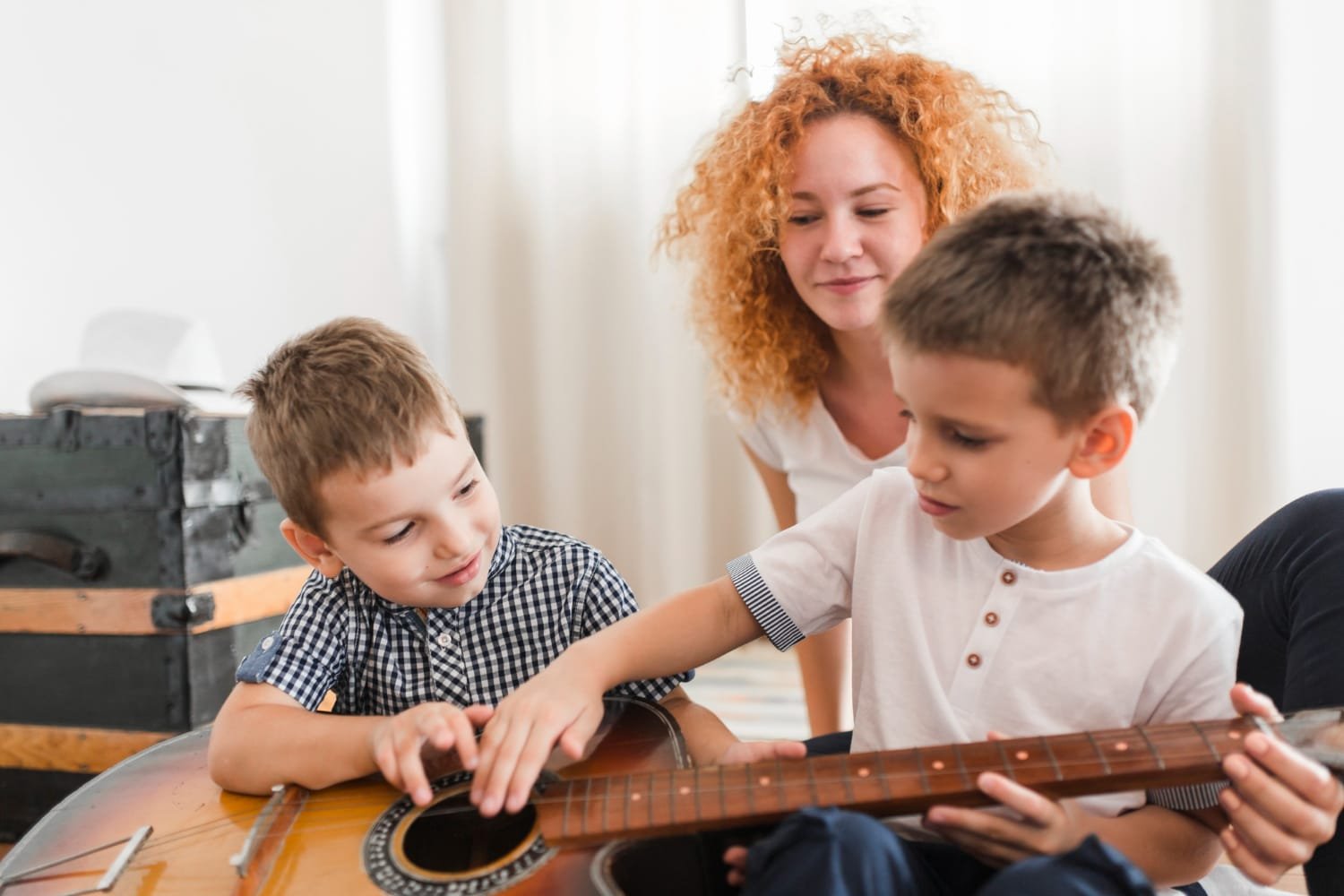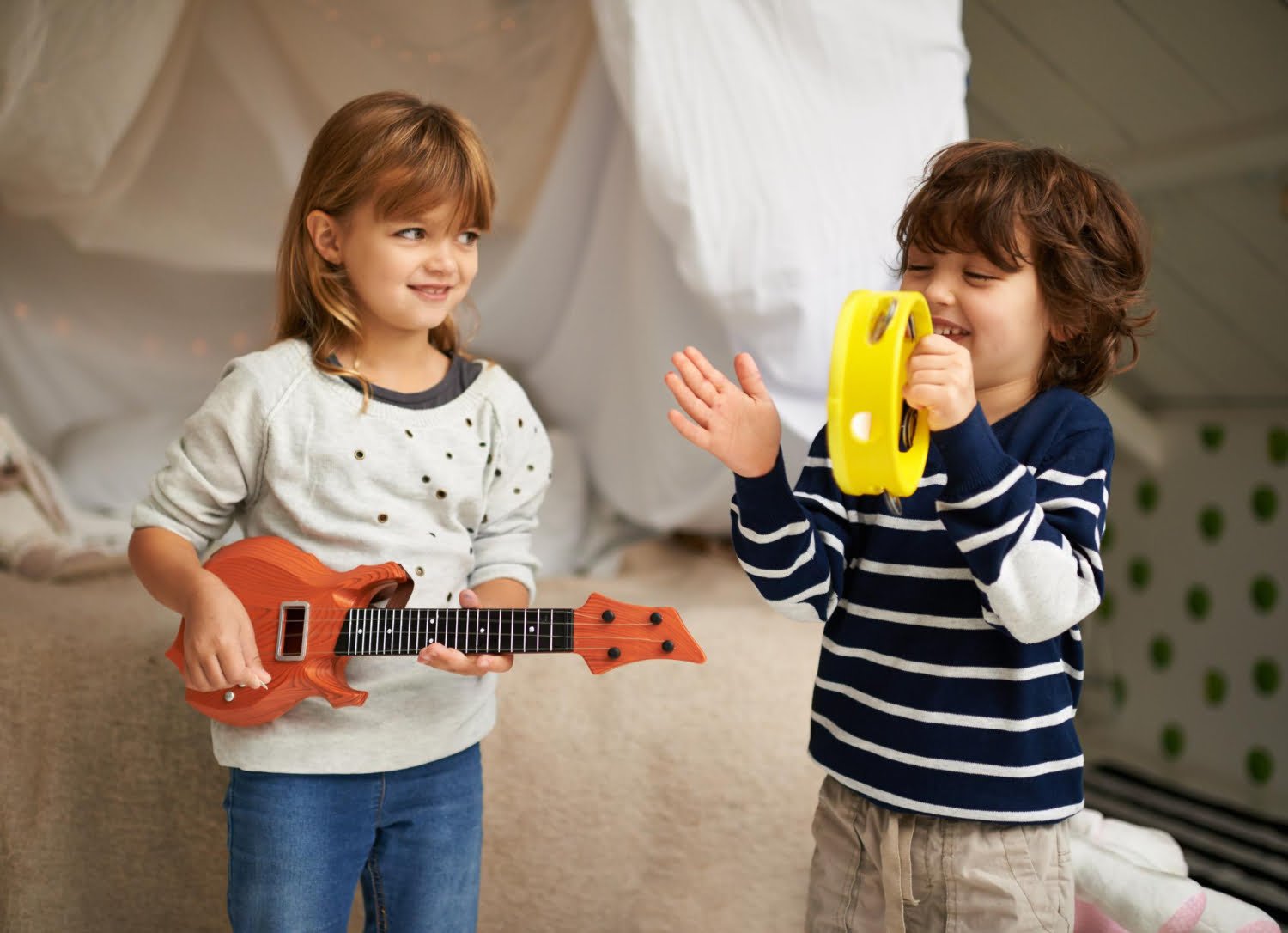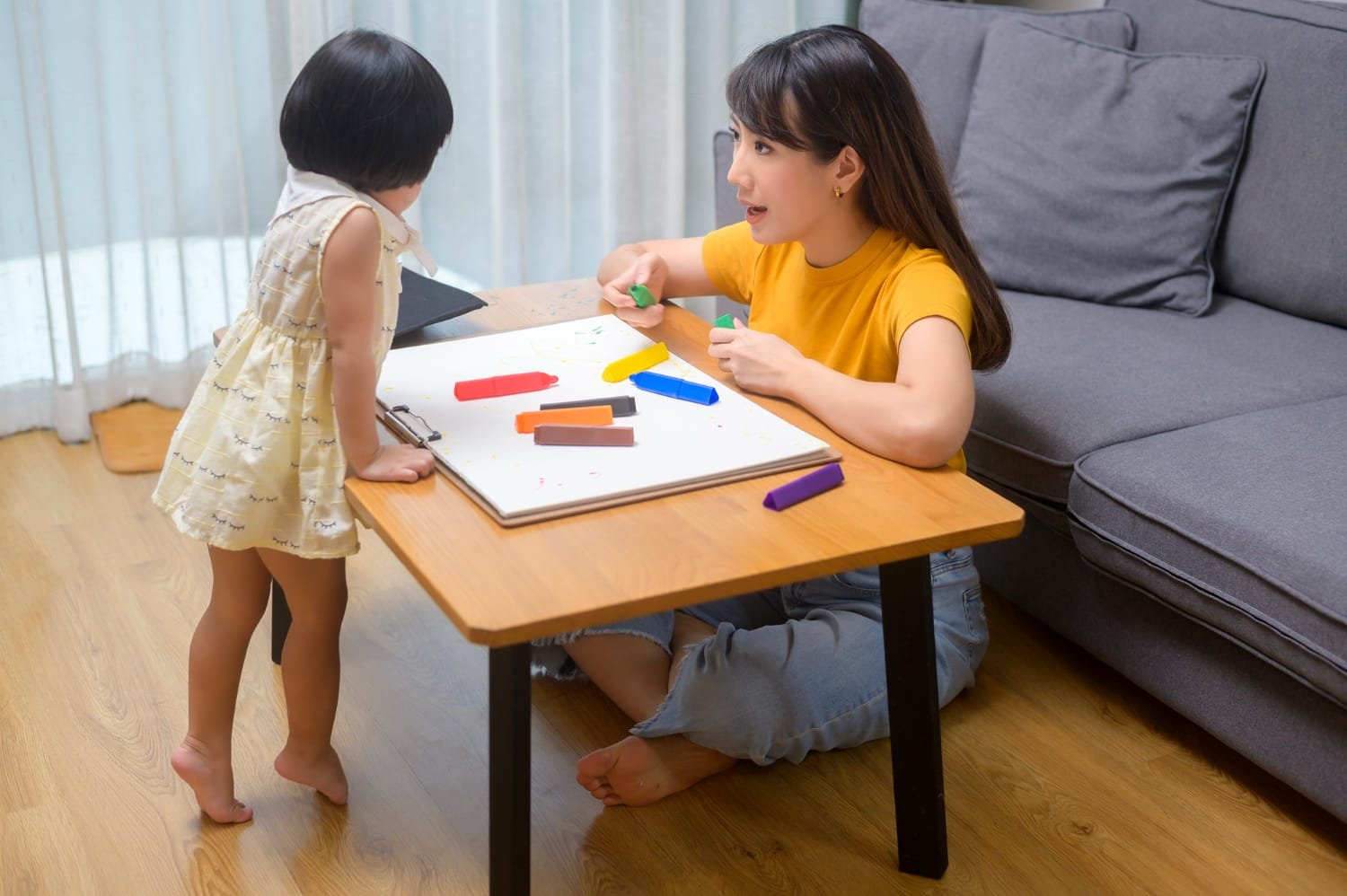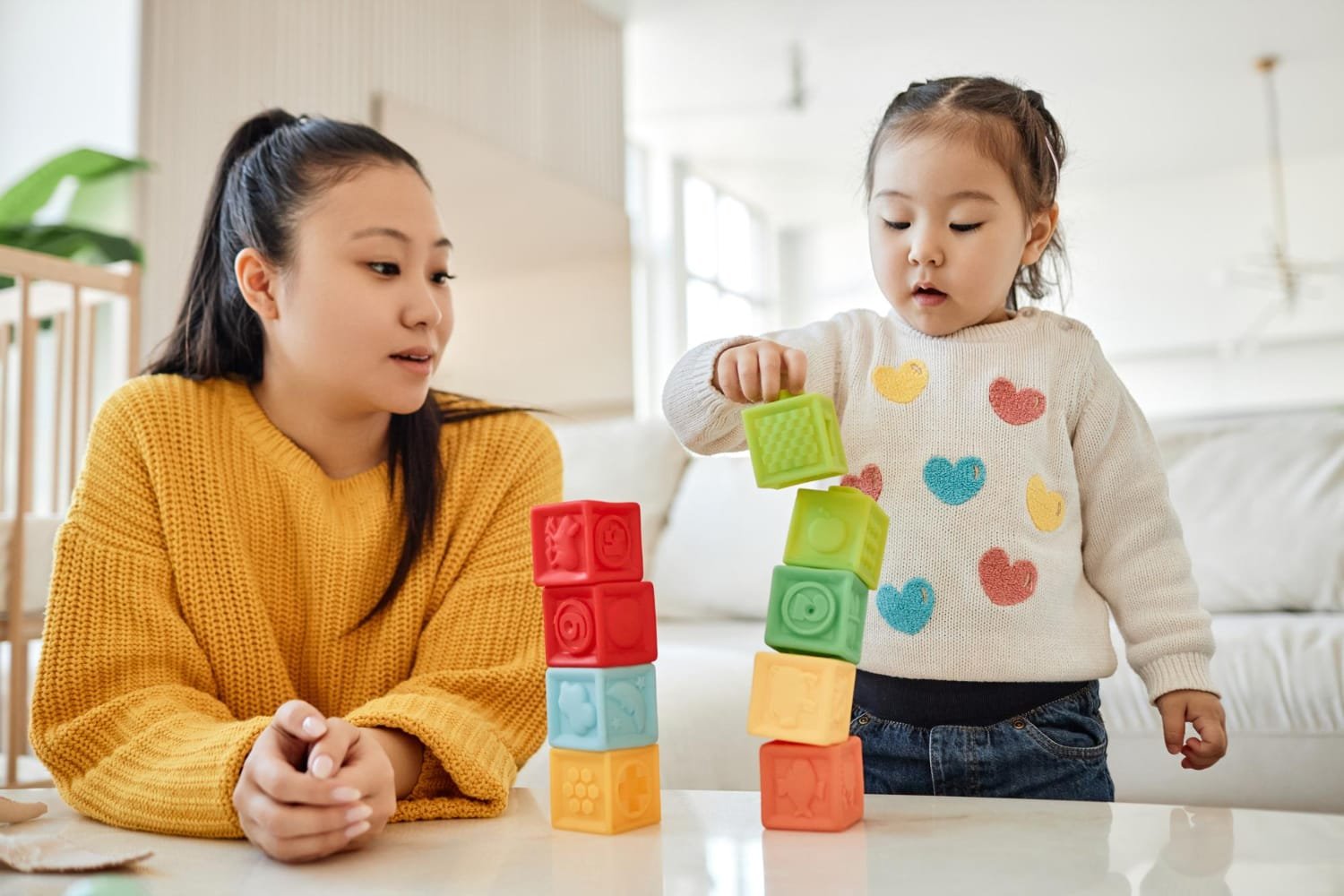Before You Sign Up for Piano Lessons, Read This!
All right, parents, let’s have an honest talk about this whole piano lesson business. Does your kid want to play the piano? Awesome! Music is a gift. But before you start imagining them as the next Beethoven, let’s get brutally honest about what you’re signing up for. I’m talking money, time, and the very real possibility of wanting to tear your hair out. Been there, done that, and still have most of my hair.
Why Do We Put Ourselves Through This? The Magnetic Pull of Music
So, why do we even consider this potentially bank-breaking, patient-testing endeavor? For me, it was a combination of things. Maybe a touch of nostalgia for my musical aspirations (or lack thereof). But mostly, it was seeing my daughter, Lily, absolutely mesmerized by music. The kid’s got a natural groove.
Brainy Stuff: It’s Not Just Hype
Okay, I admit it. The idea that music makes kids smarter was definitely a factor. And it’s not just wishful thinking. Science backs this up. There’s this study from the University of Southern California’s Brain and Creativity Institute – they found that little kids who get into music have their brains develop faster, especially in areas related to language and reading. So, yeah, maybe those piano lessons will help her conquer those dreaded spelling tests. A mom can dream, right?
Life Lessons 101: More Than Just Scales
Learning an instrument goes beyond merely taking exams; it serves as a powerful boot camp for discipline and perseverance. Convincing a sugar-fueled seven-year-old to practice scales instead of playing outside is an actual test of will. Yet, in this challenge, they discover the invaluable lesson of sticking with it, even during less enjoyable moments. They learn that hard work ultimately leads to rewarding results.
The Magic Moments: When They Actually Play Music
And then, like a ray of sunshine breaking through the clouds of frustration, it happens. They finally play something that resembles real music. The first time Lily played “Hot Cross Buns” perfectly, I felt a wave of pride and joy. At that moment, it became clear: all the effort was truly worth it.
My Rude Awakening: The Cost of It All
But let’s be; the honest, warm fuzzies fade a bit when you start looking at the price tags. I was so naive. I figured, “How bad can it be?” Oh, honey, it may not be good. It is not just about lessons. It is everything that comes with it.
This Guide: Your Shield and Sword
So, consider this your battle plan. Your insider’s guide to surviving the financial and emotional rollercoaster of piano lessons. I’m going to lay it all out for you – the good, the bad, and the ugly. Hopefully, I can save you from some of the mistakes I made. And maybe save you a little money.
The Teacher: Your Child’s Musical Sensei (and a Big Chunk of the Budget)
The piano teacher is basically your co-pilot on this journey. They’re crucial. And they’re not cheap. The price range is vast.
Experience Counts: But How Much is Too Much?
You’ve got your newbie teachers, your experienced pros, and even concert pianists giving lessons. It’s a whole spectrum.
- Baby Teachers: Often music students themselves. They’re the most affordable, usually. Suitable for true beginners. My friend’s daughter had a high school student as her first teacher, and it worked out great.
- Fresh Grads: They’ve got the degree and the enthusiasm but not always a ton of teaching experience. A decent middle ground.
- The Veterans: These teachers have seen it all. They can handle any kid and any learning style. They charge more, and in my experience, they’re worth it. Lily’s teacher, Mrs. Peterson, is one of these. The woman is a miracle worker. Seriously.
- Concert Pianists: Unless your child is destined for Carnegie Hall, this is probably unnecessary.
Credentials: Paper Doesn’t Guarantee Magic
Sure, a fancy music degree is impressive. But it doesn’t automatically make someone a great teacher. Certifications in teaching methods, like Suzuki or RCM, can be a good sign.
The Price of Wisdom: My Two Cents
Here’s the general price range I’ve encountered:
- Student Teachers: $15-$30 per half-hour.
- New Grads: $30-$50 per half-hour.
- Experienced Teachers: $50-$100+ per half-hour.
- Concert Pianists: If you have to ask, move along.
These are just estimates. It’s a wild world out there.
Finding “The One”: It’s Like Dating, But More Awkward
Here’s the real deal: the best teacher isn’t always the most expensive or the most credentialed. It’s about the vibe. Do they click with your kid? Can they make learning enjoyable?
When we met Mrs. Peterson, I just knew. She had this calming energy. Lily, who can be shy, felt comfortable with her right way. That connection is gold.
Pro Tip: Don’t be afraid to “date around.” Schedule trial lessons with different teachers. It’s the only way to find the right match. It is important!
Location Matters: And It Can Hurt Your Wallet
Where you live plays a surprisingly significant role in how much you’ll pay for piano lessons. It’s all about that good old supply and demand.
City vs. Suburbs vs. Country: The Price Rollercoaster
A big city usually means big prices. More competition means a higher cost of living, you name it.
- Big Cities: Think New York, L.A., Chicago. Prepare to pay a premium. We’re talking $75-$150+ per hour for a seasoned teacher. Ouch.
- Suburbs: Often a more reasonable option. More choices, more competitive pricing. Generally, $50-$100 per hour. This is our sweet spot.
- Rural Areas: It might be cheaper, but you might have to drive a country mile to find a decent teacher.
The Cost-of-Living Factor: It’s Real
It’s not just about city vs. country. The overall cost of living in your area matters, too. Lessons in a high-cost state will likely be pricier than in a more affordable one.
Fun Fact (or Not So Fun): The MTNA (Music Teachers National Association) did a survey, and the average hourly rate for private lessons in the U.S. was between $40 and $70. But that’s just an average. Your reality might be way different.
Home Studio vs. Music School vs. Online: Weighing the Options
Where the lessons take place also affects the price tag.
- Teacher’s Home Studio: Often more affordable because they don’t have the overhead of a separate space. It can be more personal, too.
- Music Schools: Expect to pay more. They’ve got bills to pay. But they might offer perks like performance opportunities.
- Online Lessons: The world of Zoom has made this a real option. It can be cheaper, especially if you’re in a remote area. But make sure your kid can focus in a virtual setting. It is not for every child.
Competition: A Good Thing for Your Budget
If your town is overflowing with piano teachers, that’s good news for you. They’ll have to compete on price. If there’s only one teacher within a 50-mile radius, well, they’ve got you over a barrel.
Lesson Format: Customization is Key (and Can Save You Money)
Private lessons? Group classes? 30 minutes? 60 minutes? This is where you can tailor things to fit your child and your budget. And it matters.
Private vs. Group: To Socialize or Not to Socialize
- Private Lessons: The traditional route. One-on-one attention. Customized learning. But, yeah, it’s the pricier option. This is what we do with Lily. She needs that individual focus.
- Group Lessons: More affordable, more social. But the teacher’s attention is divided. My friend’s daughter thrived in group lessons. It’s all about your kid’s personality.
Lesson Length: Attention Spans Matter
- 30 Minutes: Good for little ones (5-7 years old) who can’t sit still for long. Around $30-$60 per lesson.
- 45 Minutes: A solid choice for many kids. Prices range from $45-$90.
- 60 Minutes: Best for older, more advanced students. Expect to pay $60-$120+.
Most teachers recommend weekly lessons, but some families do every other week to cut costs.
Curriculum: From Bach to Rock and Roll
Different teachers specialize in various styles and methods.
- Traditional: Classical music, music theory, sight-reading. A strong foundation.
- Suzuki: Emphasizes ear training and parental involvement. It’s a whole lifestyle.
- Jazz/Pop: For kids who want to play contemporary music.
Age and Skill: Beginner vs. Prodigy
Beginner lessons might be a tad cheaper since they’re usually shorter and less complex. Advanced students often pay more for specialized instruction. That makes sense, right?
The Hidden Costs: They’re Lurking Everywhere
Okay, so you’ve factored in the teacher’s fees. You’re good, right? Not so fast. There are a bunch of other expenses that can creep up on you. Sneaky little devils.
Materials: Books, Sheet Music, and Doohickeys
- Method Books: These are basically piano textbooks. $10-$20 a pop, and you’ll go through a few each year.
- Sheet Music: Individual pieces can be a few bucks or $20+. It adds up.
- Digital Stuff: Apps and online resources – might have fees.
Showtime: Recitals and Competitions (and Maybe Therapy for You)
- Recitals: A chance for your kid to shine (or freeze up in terror). There might be a small fee.
- Competitions: Entry fees, travel, maybe a special outfit. Only if your kid is really into it.
The Piano: The 800-Pound Gorilla in the Room
And then there’s the instrument itself. You need something to practice on. This is a big one.
- Buying a Piano: A new acoustic piano can set you back thousands of times. Used ones are cheaper but get them checked out by a pro. Digital pianos are a more affordable option.
- Renting: A good way to test the waters. $50-$200 a month or more.
- Maintenance: Acoustic pianos need tuning ($100-$200 a pop) and occasional repairs.
Saving Money: My Ninja Tips
- Negotiate: Seriously, it doesn’t hurt to ask, especially if you’re enrolling multiple kids or committing long-term. The worst they can say is no.
- Discounts: Sibling discounts, referral programs, package deals – ask about them!
- Group Lessons: Consider them, especially for beginners.
- Free or Cheap Resources: Libraries, community centers, used books online – get creative!
The Million-Dollar Question: Is It Worth It?
So, after all this, is it worth the money, the time, and the occasional desire to pull your hair out? For me, for Lily, the answer is a big, fat YES. But it’s a personal call. Every family is different.
The Investment That Keeps on Giving
It’s an investment in their development, their happiness, and their future. The skills they learn – discipline, focus, creativity – are valuable life lessons, no matter what they end up doing. It will stay with them forever.
Beyond the Money: The Real Rewards
It is about so much more than just music. It is about finding a passion. It is about expressing yourself. It is about connecting with something bigger than yourself. Seeing Lily grow as a musician and as a person – that’s priceless.
My Verdict: Go For It (But Be Prepared)
If your kid is passionate about music, and you can make it work financially, I say do it. But go in with your eyes wide open. Do your research, find the right teacher, and be prepared for the ups and downs.
The Final Note: It’s a Wild Ride
This whole piano lesson thing is a journey. It’s a wild ride. There will be moments of pure joy and moments of utter frustration. There will be times when your kid wants to quit and times when you want to leave. But stick with it. Could you support them? And enjoy the music, even if it’s just “Hot Cross Buns” on repeat for the hundredth time.
My last, last bit of advice? Don’t be afraid to ask for help. Talk to other parents. Talk to the teacher. And don’t be scared to say, “I have no idea what I’m doing.” Because honestly, most of us don’t. We’re all just figuring it out as we go. And that’s okay. It is all part of the adventure. You will make it!
FAQs
Finding piano lessons can be challenging because of factors like location, experience, teacher, and the choice between private or group lessons. You might pay anywhere from $15 to $30 per half-hour for a student teacher, $30 to $50 for someone with a music degree, and $50 to $100 (or even more!) for an experienced teacher. Big cities tend to be pricier than rural areas. But that’s just the tip of the iceberg! Don’t forget about the cost of books, sheet music, and maybe even renting or buying a piano. It all adds up, which is why I wrote this whole article to break it down for you!
They can be, yes! Online lessons often cost less because the teacher doesn’t have the overhead of a physical studio. Plus, you might find a broader range of teachers online, which can lead to more competitive pricing. But this is a big problem, online lessons aren’t for everyone. Some kids (and adults!) need in-person interaction and hands-on guidance. It really depends on your learning style and your child’s personality. You need to make sure they will focus. It is not for every child. My daughter, for example, needs to be in person.
There’s no magic age, honestly. Some kids are ready to start as young as four or five, while others might do better waiting until they’re a bit older. The Suzuki method, for example, often starts kids really young, like three or four. But around six to eight years old is a pretty typical age to begin. The most important thing is that your child is actually interested and willing to put in the practice time. If they’re not into it, it’s going to be an uphill battle, no matter how old they are. It is a process. You cannot force them.
Hold on a second! Don’t rush out and buy a grand piano just yet, especially if you’re not sure if your child will stick with it. Renting a piano is an excellent option for beginners. It lets you test the waters without a substantial upfront investment. Many music stores offer rent-to-own programs, too. Another option is to start with a digital piano or a keyboard. They’re usually more affordable and take up less space. Just make sure it has weighted keys, so it feels more like a real piano. You will need to upgrade later, but it is a good start.
That’s the million-dollar question, isn’t it? Credentials and experience are essential, but the real key is finding a teacher who connects with your child. Try trial lessons with different teachers. Please pay attention to their patience and encourage them. Does your child enjoy the lessons? Trust your instincts; you’ll know when you find the right fit. It’s like finding the right pair of shoes – it has to be comfortable and support you on your journey. And do not be afraid to ask questions. Lots of them!”
Recommend Books
“Fundamentals of Piano Practice” by Chuan C. Chang:
This book delves into effective practice techniques, which are crucial for getting the most out of piano lessons, regardless of cost. It emphasizes efficient learning, which can potentially save money in the long run by reducing the number of lessons needed to achieve proficiency. It is a must for anyone learning piano.
“How to Get Your Child to Practice…Without Resorting to Violence!” by Cynthia Richards:
The title says it all! This book addresses one of the biggest challenges parents face: motivating their children to practice. It aligns with the article’s emphasis on the emotional and time investment involved in piano lessons.
This book explores the broader benefits of music education for child development, touching on many of the points mentioned in the article, such as cognitive benefits, emotional expression, and social development.
“A Soprano on Her Head: Right-Side-Up Reflections on Life and Other Performances” by Eloise Ristad:
While not solely focused on piano, this book addresses performance anxiety and the mental blocks that can hinder musical progress. It’s relevant to the article’s discussion of the emotional challenges and triumphs associated with learning an instrument.
“Piano Notes: The World of the Pianist” by Charles Rosen:
It gives excellent insides about everything related to piano. It is a must-have book for every piano lover.
